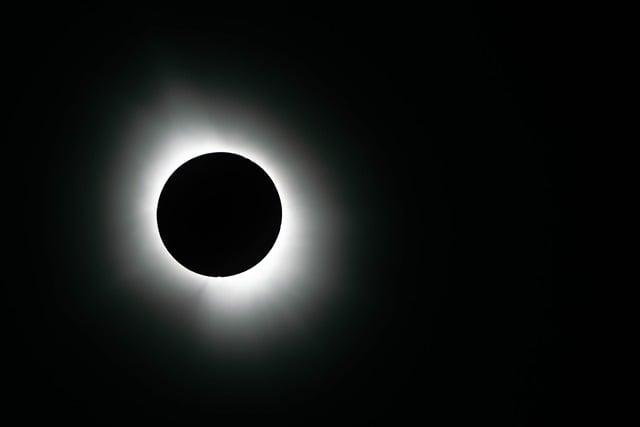In a small village, nestled between rolling hills, a curious child named Eli pondered a question that had puzzled many: “When was Jesus’s actual birthday?” One chilly evening, he gathered his friends around a flickering fire. They shared tales of shepherds and stars, of angels singing in the night sky. As the flames danced, Eli suggested that perhaps the exact date didn’t matter as much as the love and hope Jesus brought to the world. The children nodded, realizing that every day could be a celebration of kindness, just like that miraculous night long ago.
Table of Contents
- Exploring Historical Contexts of Jesuss Birth
- The Role of Astronomy in Determining the Date
- Cultural and Religious Significance of December 25
- Modern Perspectives and Celebrations of Jesuss Birthday
- Q&A

Exploring Historical Contexts of Jesuss Birth
The birth of Jesus is often celebrated on December 25th, a date that has become synonymous with Christmas. However, the actual historical context surrounding this event is far more complex. Scholars suggest that the timing of Jesus’s birth may have been influenced by various factors, including the Jewish calendar and the Roman Empire’s political climate. The **Jewish tradition** places significant importance on the timing of religious festivals, and many believe that Jesus was born during the Jewish festival of Sukkot, which typically falls in late September to early October. This theory is supported by references in the Gospels that hint at shepherds tending their flocks at night, a practice more common during the warmer months when lambing occurred.
Additionally, the **Roman Empire’s influence** cannot be overlooked. The census ordered by Emperor Augustus, which prompted Joseph and Mary to travel to Bethlehem, was a significant event that shaped the timeline of Jesus’s birth. This census was likely conducted around 6-4 BCE, aligning with historical records of Herod the Great’s reign. The convergence of these historical elements paints a picture of a world in transition, where the birth of a child in a humble setting would eventually challenge the very foundations of both Jewish and Roman societies. Understanding these contexts not only enriches our knowledge of Jesus’s birth but also invites us to reflect on the broader implications of this pivotal moment in history.

The Role of Astronomy in Determining the Date
The study of celestial bodies has long been intertwined with the quest to pinpoint significant historical events, including the birth of Jesus. Ancient astronomers meticulously observed the night sky, recording the movements of stars and planets, which played a crucial role in establishing calendars. The alignment of celestial phenomena, such as the appearance of a bright star or a conjunction of planets, often served as markers for important dates. In the case of Jesus’s birth, some scholars suggest that the “Star of Bethlehem” could have been a rare astronomical event, such as a planetary conjunction, that provided a celestial sign to the Magi. This interpretation invites us to consider how ancient peoples might have used their understanding of the cosmos to celebrate and commemorate pivotal moments in their history.
Furthermore, the timing of religious festivals and observances often relied on lunar cycles and solar events, which were meticulously tracked by astronomers of the time. The Jewish calendar, for instance, is lunisolar, meaning that it is based on both the moon’s phases and the sun’s position. This duality adds complexity to the determination of Jesus’s birthday, as it requires aligning historical accounts with astronomical data. By examining ancient texts alongside astronomical calculations, researchers can propose potential dates for Jesus’s birth, often suggesting a timeframe in late December or early January. Ultimately, the intersection of astronomy and history not only enriches our understanding of the past but also highlights the enduring human fascination with the stars and their influence on our lives.

Cultural and Religious Significance of December 25
The date of December 25 holds profound cultural and religious significance across various traditions. For Christians, it is celebrated as the birth of Jesus Christ, marking the incarnation of God in human form. This day has become synonymous with themes of hope, love, and redemption, encapsulated in the joyous festivities that include caroling, gift-giving, and communal gatherings. The choice of this date is believed to have been influenced by earlier pagan festivals, such as the Roman Saturnalia and the winter solstice celebrations, which honored the return of longer days and the rebirth of the sun. By aligning the celebration of Christ’s birth with these existing traditions, early Christians sought to provide a spiritual alternative that resonated with the cultural practices of the time.
Beyond Christianity, December 25 also resonates with various cultural narratives and practices. In many cultures, this time of year is associated with the spirit of giving and community, transcending religious boundaries. For instance, in some regions, it coincides with the celebration of Yule, a festival rooted in ancient winter solstice traditions that emphasizes the cycle of life and nature’s renewal. Additionally, the themes of light overcoming darkness are prevalent in many December celebrations, symbolizing hope and resilience. As such, December 25 serves not only as a religious observance but also as a cultural touchstone that unites diverse communities in a shared celebration of life, love, and the promise of new beginnings.

Modern Perspectives and Celebrations of Jesuss Birthday
In contemporary society, the celebration of Jesus’s birthday has evolved into a multifaceted event that transcends religious boundaries. While December 25th is widely recognized as the day of celebration, many modern perspectives emphasize the importance of the spirit of giving, love, and community that this occasion fosters. Various cultures have infused their unique traditions into the festivities, creating a rich tapestry of practices that honor the essence of the holiday. Some of these include:
- Festive Gatherings: Families and friends come together to share meals, exchange gifts, and create lasting memories.
- Charitable Acts: Many choose to give back to their communities through donations and volunteer work, embodying the message of compassion.
- Artistic Expressions: From music and dance to visual arts, creative expressions often reflect the joy and hope associated with the season.
Moreover, the commercialization of the holiday has sparked discussions about its true meaning. While some critique the materialistic aspects, others argue that the blending of secular and sacred elements can lead to a more inclusive celebration. This has given rise to various interpretations of the holiday, allowing individuals to connect with the story of Jesus in ways that resonate with their personal beliefs. Notable practices include:
- Advent Calendars: A countdown to Christmas that builds anticipation and reflection.
- Nativity Scenes: Displays that depict the birth of Jesus, serving as a reminder of the holiday’s origins.
- Global Celebrations: Different countries celebrate with unique customs, showcasing the universal appeal of the holiday.
Q&A
-
When is Jesus’s birthday celebrated?
Jesus’s birthday is celebrated on December 25th by most Christians around the world. This date has been recognized for centuries, although its historical accuracy is debated.
-
Is there a specific date mentioned in the Bible?
The Bible does not provide a specific date for Jesus’s birth. The Gospels of Matthew and Luke offer narratives of his birth but do not specify a calendar date.
-
Why was December 25 chosen as the date for celebration?
December 25 was chosen by early Christians, possibly to coincide with pagan festivals celebrating the winter solstice, making it easier to convert pagans to Christianity.
-
Do any historical records suggest a different date?
Some scholars suggest that Jesus may have been born in the spring or fall based on historical and astronomical clues, but there is no consensus on an exact date.
As we ponder the mystery of Jesus’s actual birthday, we find ourselves not just in a quest for dates, but in a deeper exploration of faith and history. Whether celebrated in December or another time, the essence of his message transcends the calendar.




